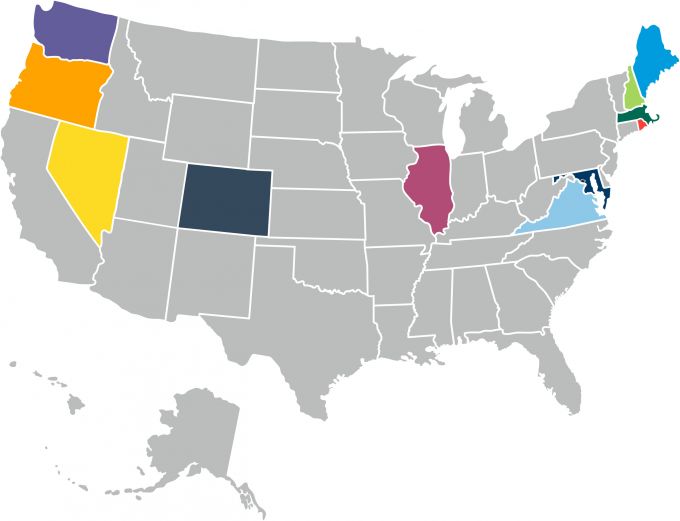Originally published on November 18, 2021 and updated as of January 27, 2023.
Over the past few years, states across the country have sought to limit or reduce the use of employee non-compete agreements. While some have imposed outright bans on such agreements, many more have passed laws that narrow the scope or classification of an employee who may be subject to a non-compete.
A common restriction is to prohibit the use of non-competes for employees who earn below a certain threshold – e.g., annual compensation, hourly wage, percentage of poverty level, or FLSA status. Employers operating in multiple states face a patchwork of regulations and need to keep their non-compete thresholds up to date. Setting calendar reminders for the annual wage updates and following the Proskauer Non-Compete and Trade Secrets page are the right steps to keep agreements compliant as the patchwork evolves.

Colorado
Non-competes prohibited for employees earning less than $112,500 per year. Customer non-solicits prohibited for employees earning less than $67,500 per year.
Illinois
Non-competes prohibited for less than $75,000 per year. Non-solicits prohibited for employees earning less than $45,000 per year.
Maine
Non-competes prohibited for employees earning wages at or below 400% of the federal poverty level, or $58,320 per year.
Maryland
Non-competes prohibited for employees earning less than or equal to $15 per hour or $31,200 per year.
Massachusetts
Non-competes prohibited for: (i) non- exempt employees; (ii) undergraduate or graduate students participating in internships or short-term employment; employees that have been terminated without cause or laid off; and employees under the age of 18.
New Hampshire
Non-competes prohibited for employees earning an hourly wage less than or equal to 200% of the federal minimum wage ($14.50 per hour or $30,160 per year); or (ii) less than or equal to 200% of the tipped minimum wage in the state.
Nevada
Non-competes prohibited for employees who are paid solely on an hourly wage basis, exclusive of tips or gratuities.
Oregon
Non-competes prohibited for employees earning less than or equal to $100,533* per year.
Rhode Island
Non-competes prohibited for: (i) non- exempt employees; (ii) undergraduate or graduate students participating in internships or short-term employment; employees under the age of 19; and employees whose average annual earnings (excluding overtime, Sunday, or holiday premiums) are less than 250% of the federal poverty level, or $36,450 per year.
Virginia
Non-competes prohibited for employees earning less than Virginia’s average weekly wage: $1,343 per week or $69,836 per year.
Washington
Non-competes prohibited for employees earning less than $116,593.18 per year, and independent contractors earning less than $291,482.95 per year.
Washington, DC
Non-competes prohibited for employees earning less than $150,000 per year.
*This number is current as of January 1, 2022.

![[Podcast]: Developments & Trends Across the Country in Non-Compete Law](https://prfirmpwwwcdn0001.azureedge.net/azstgacctpwwwct0001/uploads/insights/24377/block_small/stapler-BfrOrB.jpg)
![[Podcast]: Ban on Non-Compete Agreements Amendments Act of 2020](https://prfirmpwwwcdn0001.azureedge.net/azstgacctpwwwct0001/uploads/insights/24250/block_small/stapler-BT586H.jpg)